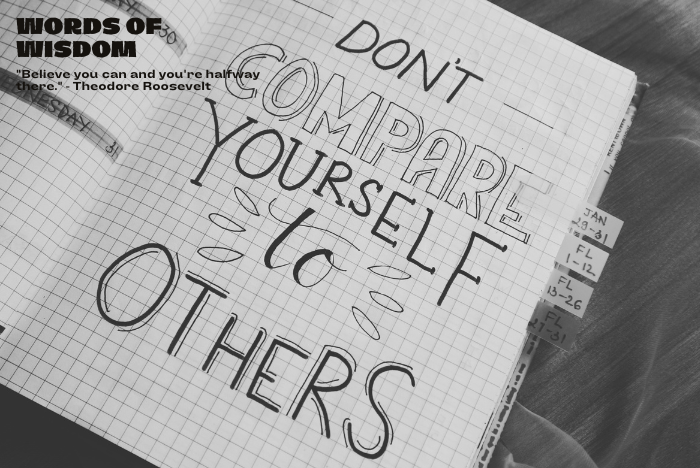Why challenges are amazing!
Using challenges as a tool to help people can be a powerful approach to personal and professional development. Challenges can be used to help people achieve their goals, develop new skills, and improve their lives. They can also be used to help people overcome obstacles and achieve their dreams. In this post, we'll explore why challenges are so effective and how you can leverage them for your own growth.
Why use challenges?
Competitive
Have you ever felt a little competitive towards someone, no matter who it is? Maybe you want to be better than them at something, or maybe you just want to prove that you can do something better than them. Whatever the reason, challenges are a great way to motivate yourself and others to do better. This healthy competition can push you beyond what you thought was possible and help you discover new capabilities.
Sharing
Another place where challenges can help is when you share what you are doing or wanting to achieve with your friends, family and coworkers, that can be a driving force to complete the task. You are significantly more likely to think about it, and do it, if you have told someone you are going to do it. Research shows that publicly committing to a goal increases the likelihood of achievement by up to 65%. When others know about your challenge, you gain both accountability and support.
Social
Trying to achieve anything alone is much more difficult, we are humans that need to be social (usually). Trying to achieve things with others is a great way to build relationships. It can be a great way to meet new people, and to get to know people better. It can also be a great way to build trust and respect for others. Shared challenges create a unique bond through common experiences and mutual support during difficult moments.
Measurable Progress
Challenges provide clear metrics for success, making it easier to track your progress. Unlike vague goals, well-designed challenges have specific parameters that help you see how far you've come. This visibility is incredibly motivating and helps maintain momentum even when the initial excitement fades. At Motivation Advisor, we've seen that users who track their progress are 3x more likely to complete their challenges.
Growth Mindset Development
Engaging in challenges helps cultivate a growth mindset—the belief that abilities can be developed through dedication and hard work. When you regularly push yourself outside your comfort zone, you begin to see obstacles as opportunities rather than threats. This perspective shift is valuable not just for the specific challenge at hand, but for all areas of life.
The Science Behind Challenges
The effectiveness of challenges isn't just anecdotal—it's backed by science. Here's what research tells us about why challenges work so well:
Dopamine and Reward Systems
When we make progress toward a goal, our brain releases dopamine, a neurotransmitter associated with pleasure and satisfaction. Well-structured challenges provide regular opportunities for these dopamine hits through milestone achievements, keeping motivation high throughout the journey. This is why breaking larger challenges into smaller sub-challenges can be so effective.
Social Reinforcement
Humans are inherently social creatures, and our brains are wired to respond to social approval and disapproval. When we participate in challenges with others, we benefit from social reinforcement that strengthens our commitment. Studies show that people who exercise with partners are more likely to stick with their routines than those who exercise alone—the same principle applies to all types of challenges.
Optimal Challenge Point
Psychologists have identified what's known as the "optimal challenge point"—the sweet spot where a task is difficult enough to be engaging but not so difficult that it becomes frustrating. Well-designed challenges hit this optimal point, creating what psychologist Mihaly Csikszentmihalyi calls "flow"—a state of complete immersion and enjoyment in an activity.
Types of challenges:
There are many different types of challenges, each with unique benefits and applications. Here is a list of some of the most common ones:
- Education and Learning Challenges
- Professional Development Challenges
- Personal Growth Challenges
- Health and Wellness Challenges
- Fitness Challenges
- Weight Loss Challenges
- Habit Change Challenges
- Social Challenges
- Community Challenges
- Environmental Challenges
- Financial Challenges
- Career Challenges
- Relationship Challenges
- Family Challenges
- Creative Challenges
- Travel Challenges
- Adventure Challenges
How to Design Effective Challenges
Whether you're creating a challenge for yourself, your team, or your community, these principles will help you design challenges that drive engagement and results:
Clear Parameters
Effective challenges have well-defined rules, timeframes, and success criteria. Participants should know exactly what constitutes progress and how to measure it. Ambiguity leads to confusion and decreased motivation, so be as specific as possible about what the challenge entails.
Appropriate Difficulty
The most engaging challenges strike a balance between being achievable and pushing participants beyond their comfort zones. If a challenge is too easy, it won't be motivating; if it's too difficult, participants may become discouraged and give up. Consider offering tiered levels of difficulty to accommodate different starting points.
Regular Feedback
Build in mechanisms for participants to receive feedback on their progress. This could be through tracking tools, check-ins with accountability partners, or milestone celebrations. Feedback helps participants adjust their approach if needed and provides motivation to continue.
Social Elements
Incorporate social components into your challenge design. This could include team structures, leaderboards, community forums, or shared celebrations. The social aspect not only increases accountability but also makes the experience more enjoyable and sustainable.
Meaningful Rewards
Consider what will truly motivate participants. While external rewards like prizes can be effective, intrinsic rewards—such as the satisfaction of mastering a skill or contributing to a cause—often provide deeper and more lasting motivation. The best challenges incorporate both types of rewards.
Overcoming Challenge Obstacles
Even the best-designed challenges can face obstacles. Here's how to address common issues:
Motivation Dips
It's normal for motivation to fluctuate during a challenge. Combat this by building in variety, celebrating small wins, and having accountability systems in place. Remind participants of their "why"—the deeper reason they committed to the challenge in the first place.
Time Constraints
Many people cite lack of time as a reason for not participating in challenges. Address this by designing challenges with flexible time commitments or by helping participants identify low-value activities they can replace with challenge-related activities.
Fear of Failure
Some people avoid challenges because they're afraid of failing publicly. Create a supportive environment where effort is celebrated as much as achievement, and where setbacks are framed as learning opportunities rather than failures.
Conclusion: The Transformative Power of Challenges
Challenges are more than just structured activities—they're powerful tools for personal and collective transformation. By harnessing our natural inclinations toward competition, social connection, and measurable progress, challenges can help us achieve things we might have thought impossible.
Whether you're looking to improve your health, develop a new skill, build stronger relationships, or contribute to your community, there's a challenge format that can help you get there. The key is to find or create challenges that align with your values and goals, and that incorporate the elements of effective challenge design we've discussed.
At Motivation Advisor, we've seen firsthand how challenges can transform lives. Our platform is designed to make it easy to create, join, and track challenges that matter to you. We provide the structure, community, and tools you need to succeed, whether you're challenging yourself or joining forces with others.
Ready to experience the amazing power of challenges for yourself? Start by identifying one area of your life where you'd like to see growth, then design a simple challenge to address it. Share your intention with others, track your progress, and celebrate your wins along the way. You might be surprised at just how far a well-designed challenge can take you.
You Might Also Like

Building Consistent Habits: The Foundation of Personal Growth
Learn effective strategies for building consistent habits that stick, helping you create lasting positive change in your life.

Monday motivational quotes - you need something better!
Monday motivational quotes have flooded our social media feeds and work emails for years. You need something better. Find out why.

Proven Techniques to Overcome Procrastination
Discover evidence-based strategies to beat procrastination and reclaim your productivity with these practical techniques.
